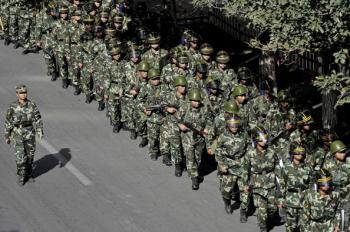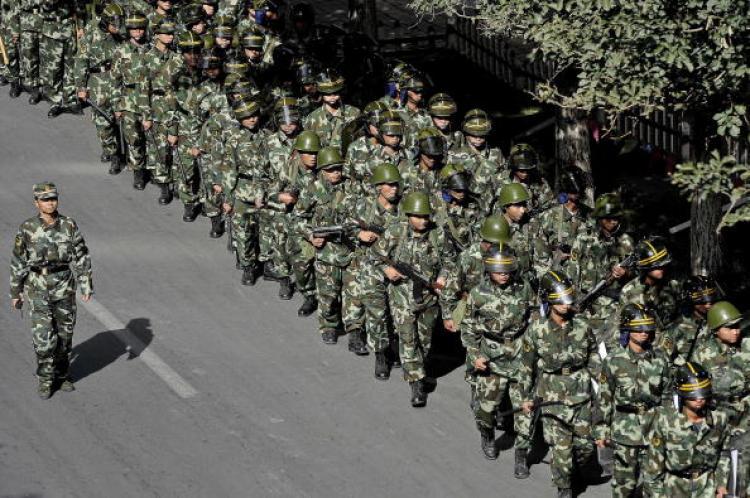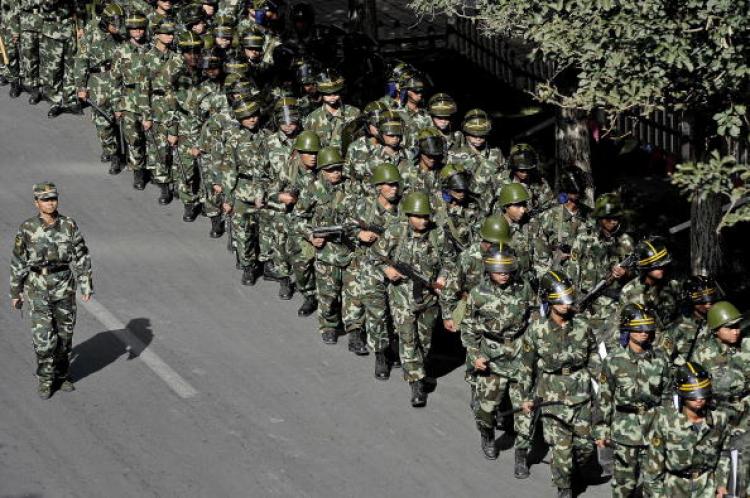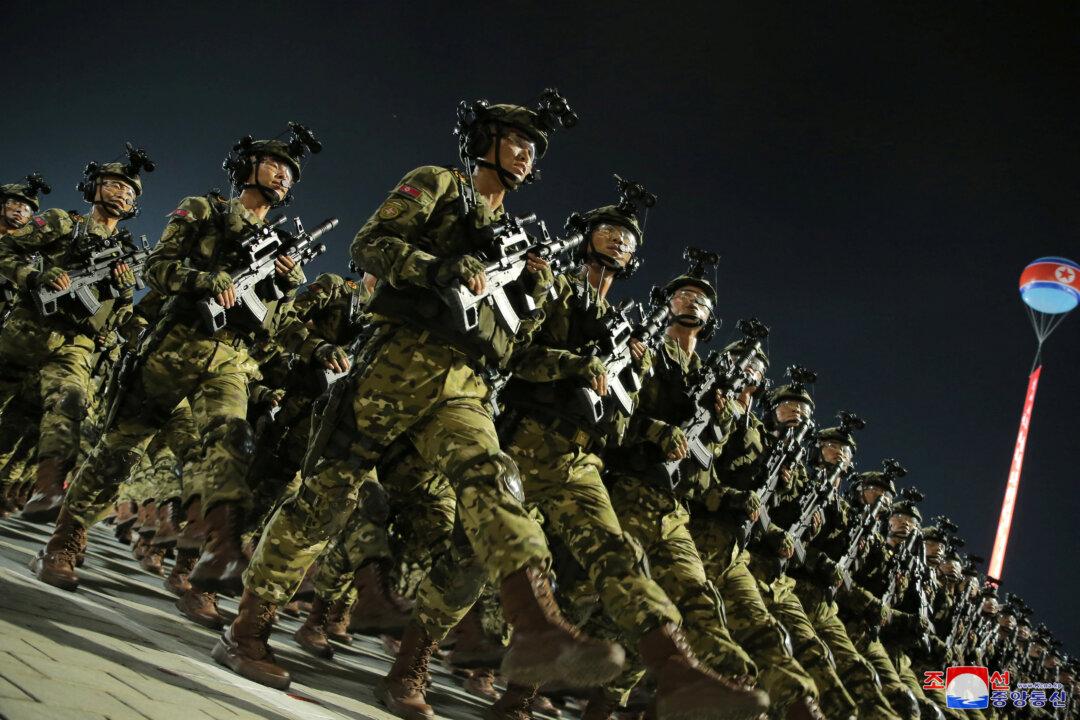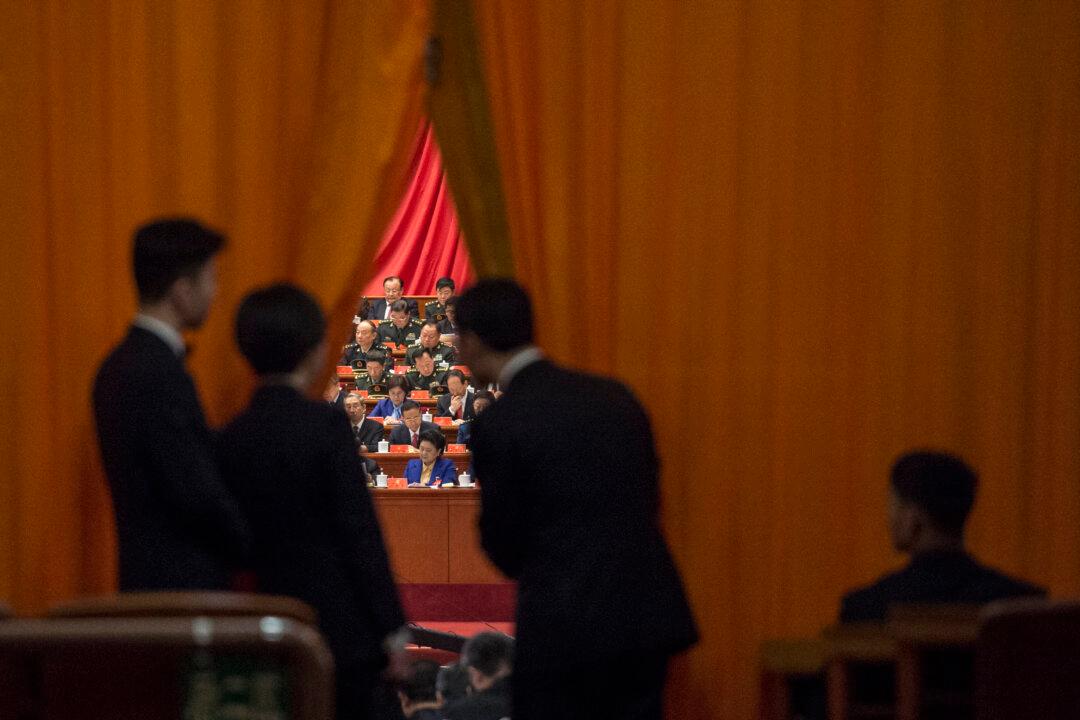China’s state media has claimed that 197 people died and 1700 were injured in the clashes. Many people speculated that as many as 1,000 people may have died.
Sadness and anger lingers for both groups, say locals. Some think that the actions of the Chinese regime will only exacerbate tensions.
“The July 5 riot has affected every aspect of people’s life in Xinjiang,” wrote a former resident in a recent blog. “Every day is filled with memories, sadness, anger, discontentment, and hatred.”
Death Sentences Political Decision, No Legal Representation
Dolkun Isa, Secretary General of the World Uyghur Congress, said the decision was merely a political decision and not legal.
“An independent investigation must be carried out, to impartially determine what has truly taken place”, he said in a statement. “These men were neither granted their right to a lawyer, nor to a fair legal process, thereby violating both international law and the Chinese constitution.”
Immediate involvement of the international community and an independent investigation are urgently needed, he said. “If no response comes, the Chinese government has no reason to stop the discriminatory sentencing of the Uyghurs still up for trial.”
The Unrepresented Nations and Peoples Organization (UNPO) also condemned the death penalty decision. “This goes against all international standards of human rights, most notably the universal right to equality before the law,” said Marino Busdachin, Secretary General of UNPO, in a statement.
“The men were not permitted any form of legal aid and suffered as a result of discriminatory decisions and a complete lack of transparency throughout the process,” Busdachin said. The death sentences are further proof of China’s unwillingness to abide by the United Nations Global Moratorium on the Death Penalty, adopted in 2007, which establishes a suspension on executions with the view to abolish the death penalty, he said.
Searching for Causes
As the Chinese regime imposed harsh sentences, a group of Han Chinese who grew up in Xinjiang and see it as their homeland, expressed their concern over the continuing violence in the region. They now live outside the region, but view the riot as a reflection of the social problems in China.
The group are attempting to collect the names of those who died in the riot and hope more people can assist them in identifying the victims. So far, only 28 people have been identified.
They have asked the Urumqi authorities to hold a formal, solemn memorial service and to dedicate a memorial tablet for the innocent people who died in Xinjiang on July 5.
Blogs Reveal Frustration
Netizens tried to hold a one-hundred-day memorial vigil online to honor the dead, however their Web site was blocked as soon as the message was posted. Messages posted on other forums were also blocked within minutes. Other messages related to organizing a gathering at noon on Oct. 12 were also blocked.
One college student posted this Internet message: “My school is really something! They’ve summoned me to talk with them twice. The campus supermarket is not allowed to sell white candles. I should be able to light a candle and mourn [for the dead], right? They also told me to inform them as soon as I receive similar messages.”
Another blogger commented, “It has been 100 days since the July 5 riot. It’s one thing that the government did not prepare for any memorial activity for those who died in the riot. Now they don’t even let people hold a public memorial service. The Xinjiang authorities are so passive and incompetent.”
“Knives were just banned in Beijing’s supermarket, and now white candles are banned on the university campus,” wrote another blogger.
Read Chinese article: http://www.epochtimes.com/gb/9/10/13/n2686783p.htm
http://epochtimes.com/gb/9/10/12/n2686564.htm
